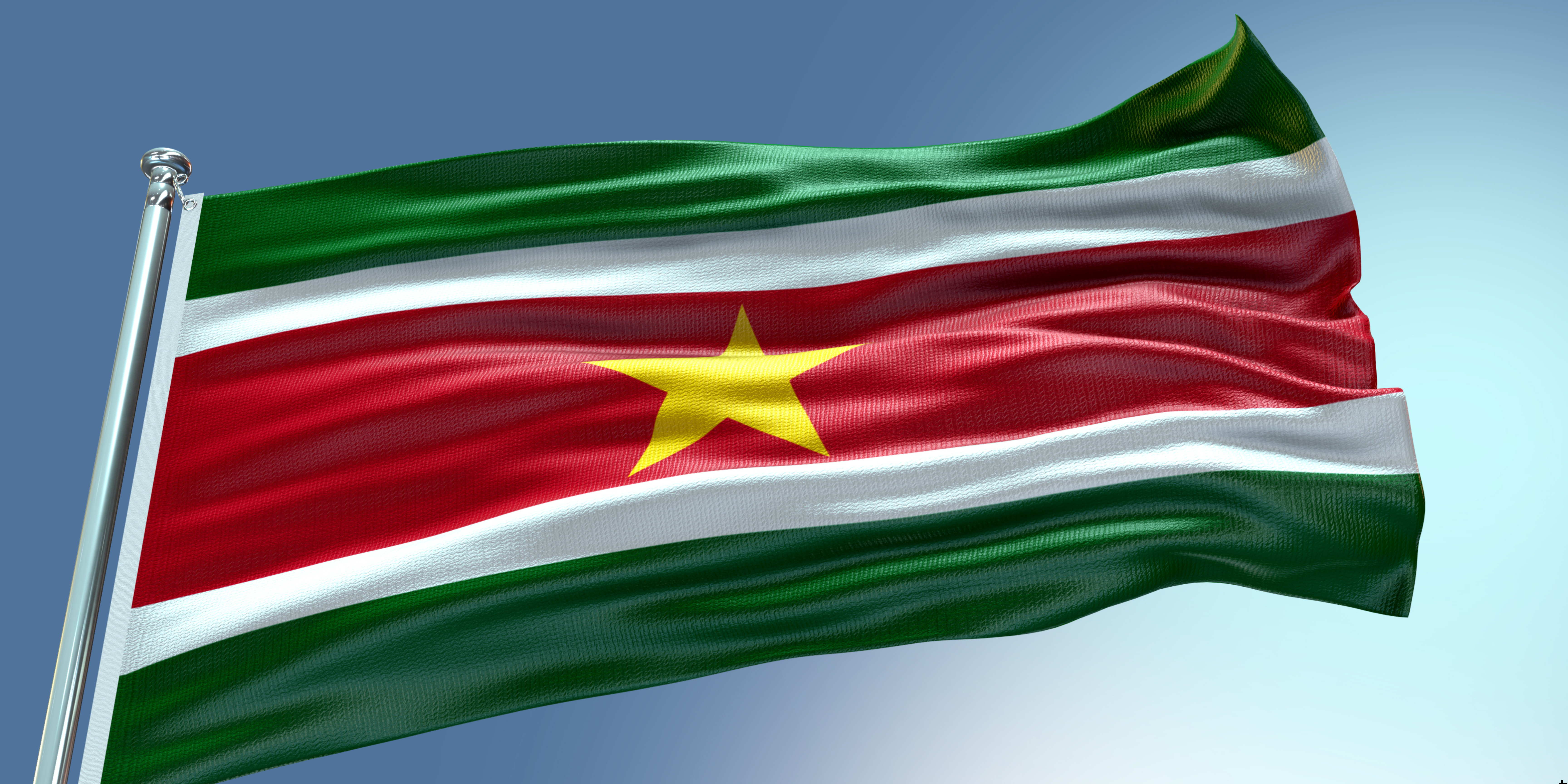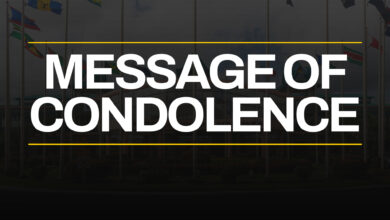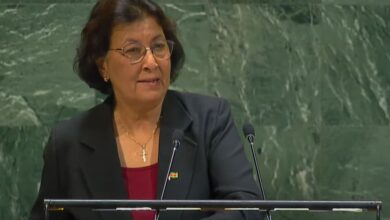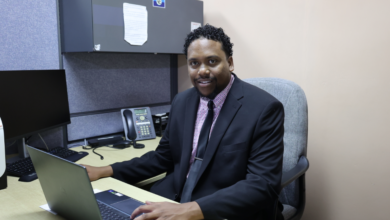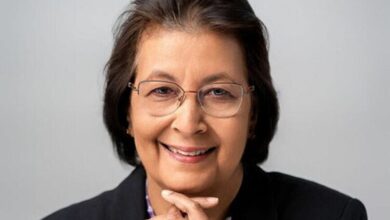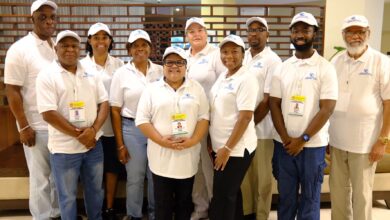Heads of Government of the Caribbean Community (CARICOM) have committed to supporting Member States, on their request, by providing an independent, impartial and honest assessment of the preparations for, and conduct of General Elections. In this context, the Government of Suriname invited the Caribbean Community to deploy a CARICOM Election Observation Mission (CEOM) to observe the General Elections on 25 May 2025.
In response to the invitation, the CARICOM Secretariat deployed an eight-member team to observe the Elections in the Republic of Suriname. The Mission comprised election practitioners from Antigua and Barbuda, The Bahamas, Barbados, Guyana, Jamaica, Saint Lucia, St. Vincent and the Grenadines, and Trinidad and Tobago. The team was supported by three members of staff from the CARICOM Secretariat.
The entire CEOM arrived in the Republic of Suriname by 22nd May and departed on 27 May 2025.
To adequately provide the independent, impartial, and honest assessment referenced earlier, the CEOM set out to:
- Observe the entire election process in the host country, including the general atmosphere and environmental conditions under which the elections were being conducted; the activities at the polling stations on the day of the elections; the counting and tabulation of votes after the closing of the polls; and the political climate after the announcement of the results;
- Collect qualitative and quantitative data regarding the entire election process, including the general administration of the election by the election officials, and the conduct of stakeholders such as political actors, civil society, the media, and the voting public at large; and
- Identify opportunities for improvement and make appropriate and timely recommendations.
Pre- Election Period
During the pre-election period, the CEOM engaged a number of stakeholders whom it believed would provide critical information on the country’s electoral laws and practices. These engagements also aided in the further understanding of the political culture and broader environment under which the elections were being held.
The CEOM paid a courtesy call on President Chandrikapersad Santokhi and completed a series of engagements with the Independent Electoral Council, the Directorate of National Security, the National Assembly, the Ministry of Home Affairs, and the Ministry of Foreign Affairs, International Business and International Cooperation. The CEOM also met representatives of several political parties and civic organisations, including the Association of Indigenous Village Chiefs (VIDS), the Inter-Religious Council, the National Youth Council, the Anti-Fraud Platform, the Wan Okasi Foundation, the Maroon Tribes of Suriname (KAMPOS), and local government officials in the districts of Brokopondo, Wanica, Matta, Bernarddorp and Para including two basjas.
During these engagements, some key concerns were raised, including:
- Training of polling day staff;
- Exclusion of candidates from the local council ballots;
- The implications of the October 2023 amendment to the electoral law;
- Claims of potential voter fraud;
- Public education, especially for Indigenous and Maroon communities; and
- Security of the new plastic ballot boxes.
Election Day
On polling day, the team visited 136 polling stations across six (6) districts, namely, Commewijne, Coronie, Marowijne, Paramaribo, Saramacca, and Wanica.
The team observed the polling activities, which included the opening of the polls, the voting process, the closing of the polls, and the counting of ballots.
The team made the observations below.
The CEOM team witnessed the opening and closing of the polls in polling stations across Paramaribo and concluded that the pre-poll and opening procedures were followed. The Mission further observed that there was a sufficient supply of the required voting materials at polling stations. Nonetheless, several polling stations in Paramaribo experienced delayed openings, with some delays exceeding an hour and a half. Furthermore, while most of these stations were fully staffed, some did not have a full staff complement. Some polling staff also appeared to show a lack of confidence in the execution of their duties. These factors contributed to delays in the voting process in these specific stations.
As the CEOM traversed the various districts throughout the day to witness the voting process, it was evident that the polling stations visited were conveniently located and easily accessible to most of the voters, including those with physical disabilities. Voting was generally conducted in an orderly manner and most polling staff were efficient in the conduct of their duties. It was further observed that political party representatives mostly witnessed the voting process outside of the polling stations. Some representatives raised concerns about not being able to hear clearly as the names of electors were called. Consequently, at times they were either unable to cross off or record the name of the elector, especially in cases where names were similar.
The innovation undertaken by the Surinamese government in introducing new voting booths was noted, and the availability of three or more voting booths per station, including one designated for wheelchair users, contributed to the efficiency of the process. It was further noted, however, that the positioning and configuration of the voting booths could be improved to guarantee the secrecy of the vote.
Polling stations closed promptly at 7:00 p.m. and the closing procedures were generally adhered to. Thereafter, it was noted that the aforementioned challenges regarding the staff shortage and staff preparation also affected the orderly counting of the ballots in some polling stations visited. This necessitated the intervention of the Independent Electoral Council (OKB) staff. During the ballot counting phase, political party representatives were located either inside or outside of the polling stations. The presence of some representatives inside the stations indicates that electoral officials had made an effort to alleviate stakeholder concerns regarding the ability to identify the voter’s choice from outside the station. The concern was considered valid based on the experience of the CARICOM observers and would still be considered relevant in the case of those party representatives viewing the procedure from outside the polling station.
Conclusion
While there were some operational and staffing challenges, overall, the General Elections of 25 May 2025 were peaceful and were conducted in an atmosphere of robust civic engagement and camaraderie among the Surinamese people.
The CEOM will prepare a full report for submission to the Secretary-General of the Caribbean Community (CARICOM), which will include recommendations for the conduct of future elections in the Republic of Suriname.
The CARICOM Election Observation Mission expresses its gratitude for the invitation extended to support the democratic process in the Republic of Suriname. The team also extends appreciation to all the stakeholders who contributed to the successful outcome of the Mission.
Thank you.
Dora James
Chief of Mission
27 May 2025

